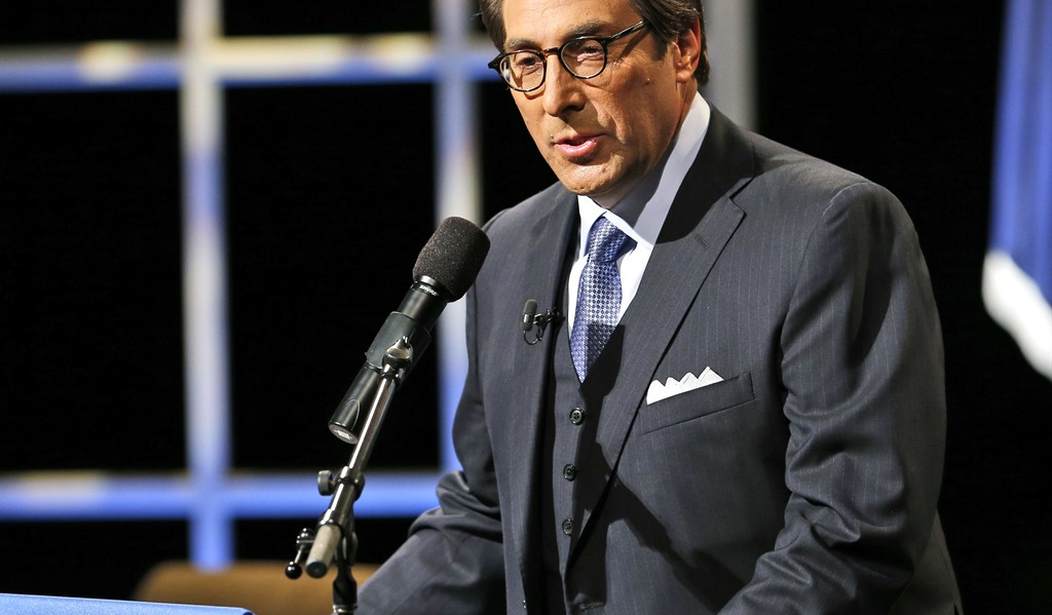Clearly someone’s discussing pardons, but perhaps only with the Washington Post. Last night the paper dropped what looked like a bombshell about efforts within the White House to discern the boundaries of presidential pardoning authority — including a self-pardon from Donald Trump. The question was whether the discussion was academic or something more:
Some of President Trump’s lawyers are exploring ways to limit or undercut special counsel Robert S. Mueller III’s Russia investigation, building a case against what they allege are his conflicts of interest and discussing the president’s authority to grant pardons, according to people familiar with the effort.
Trump has asked his advisers about his power to pardon aides, family members and even himself in connection with the probe, according to one of those people. A second person said Trump’s lawyers have been discussing the president’s pardoning powers among themselves.
The Post’s reporting suggested that it was more academic than aspirational, at least for Trump:
Trump’s legal team declined to comment on the issue. But one adviser said the president has simply expressed a curiosity in understanding the reach of his pardoning authority, as well as the limits of Mueller’s investigation.
“This is not in the context of, ‘I can’t wait to pardon myself,’ ” a close adviser said.
Major Garrett of CBS News reports this morning that Trump attorney Jay Sekulow adamantly denies the story. “Pardons are not being discussed and are not on the table,” Sekulow told Garrett directly:
Garrett also noted that Trump has shaken up his legal team in the last few days, although one of the moves was predictable:
Marc Kasowitz is out as the president’s personal attorney and Kasowitz’s spokesman, Mark Corallo, has resigned, Garrett says.
Kasowitz recently made headlines when he sent threatening emails to a retired public relations professional who had said Kasowitz should resign. In his first response, Kasowitz wrote “F*** you,” according to ProPublica. Kasowitz wrote a number of emails after that, including one that said, “And you don’t know me, but I will know you How dare you send me an email like that I’m on you now You are f****** with me now Let’s see who you are Watch your back, b****.” Kasowitz later apologized.
Let’s also take a look at this out of “curiosity” too. It would be curious if Trump’s attorneys spent much time at all researching the president’s powers to pardon others. Presidential pardoning authority is plenary, and has been recognized as such since at least Ex parte Garland in 1866, a case that had to do with pardoned Confederates re-entering the judiciary after the Civil War. Paragraphs 9 and 10 emphasize the absolute authority vested in the office for pardons and their full and total impact:
9. The power of pardon conferred by the Constitution upon the President is unlimited except in cases of impeachment. It extends to every offence known to the law, and may be exercised at any time after its commission, either before legal proceedings are taken or during their pendency, or after conviction and judgment. The power is not subject to legislative control.
10. A pardon reaches the punishment prescribed for an offence and the guilt of the offender. If granted before conviction, it prevents any of the penalties and disabilities consequent upon conviction from attaching; if granted after conviction, it removes the penalties and disabilities and restores him to all his civil rights. It gives him a new credit and capacity. There is only this limitation to its operation: it does not restore offices forfeited, or property of interests vested in others in consequence of the conviction and judgment.
This came up after the Marc Rich pardon from Bill Clinton in his final hours as president. Once it became known that Clinton had pardoned the fugitive financier — whose ex-wife was a major donor to Democrats — the Republican Congress agitated for a reversal, but there is no mechanism to undo a pardon. It is complete and final from the moment it is issued. Rich was therefore untouchable for any crimes committed prior to the pardon.
But all of this is well known. The only question worth any “curiosity” at all is whether a president can pardon himself. No one knows, and it has not yet been attempted by a president (or a governor for that matter, I believe). Garland doesn’t actually speak to that question; it mentions impeachment as a limitation, but the context of Garland was judiciary appointments. Its mention seems to be a reference to judicial impeachments and removals that automatically create an impediment to renomination to the federal bench, rather than the alleged impediment of the Confederate oaths at issue in Garland that were wiped out by the presidential pardons.
Impeachment may still be the relevant potential in this question, and the true concern. Impeachment is a political process, not a criminal or civil process, and pardons don’t apply to political processes. Even if a president has the authority to pardon himself, the act of removing any accountability from the office of president would create perhaps the most acute constitutional crisis since the Civil War. An impeachment effort would almost certainly arise, and for a president with 40% approval ratings, that’s probably a risk Trump won’t want to take.
Addendum: Be sure to read this 1997 analysis from Brian Kalt at the Michigan State University College of Law on the question of self-pardons. Garland comes up in a few footnotes, but the focus is on the debate over pardon authority during the constitutional convention and hundreds of years of precedent. Kalt concludes that it’s still ambiguous, but that the weight of evidence shows that self-pardons are likely unconstitutional.







Join the conversation as a VIP Member